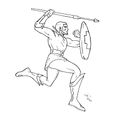Template:Selected anniversaries/October 24: Difference between revisions
No edit summary |
No edit summary |
||
| Line 2: | Line 2: | ||
File:Tycho Brahe.jpg|link=Tycho Brahe (nonfiction)|1601: Astronomer [[Tycho Brahe (nonfiction)|Tycho Brahe]] dies. He made astronomical observations some five times more accurate than the best available observations at the time. | File:Tycho Brahe.jpg|link=Tycho Brahe (nonfiction)|1601: Astronomer [[Tycho Brahe (nonfiction)|Tycho Brahe]] dies. He made astronomical observations some five times more accurate than the best available observations at the time. | ||
||1632: Antonie van Leeuwenhoek born ... biologist and microbiologist | ||1632: Antonie van Leeuwenhoek born ... biologist and microbiologist. Pic. | ||
File:Wilhelm_Schickard_1632.jpg|link=Wilhelm Schickard (nonfiction)|1635: Minister, scholar, astronomer, mathematician, cartographer, and inventor [[Wilhelm Schickard (nonfiction)|Wilhelm Schickard]] dies. He design and built calculating machines, and invented techniques for producing improved maps. | File:Wilhelm_Schickard_1632.jpg|link=Wilhelm Schickard (nonfiction)|1635: Minister, scholar, astronomer, mathematician, cartographer, and inventor [[Wilhelm Schickard (nonfiction)|Wilhelm Schickard]] dies. He design and built calculating machines, and invented techniques for producing improved maps. | ||
Revision as of 21:57, 26 January 2019
1601: Astronomer Tycho Brahe dies. He made astronomical observations some five times more accurate than the best available observations at the time.
1635: Minister, scholar, astronomer, mathematician, cartographer, and inventor Wilhelm Schickard dies. He design and built calculating machines, and invented techniques for producing improved maps.
1602: Physicist, inventor, and crime-fighter Galileo Galilei uses Tycho Brahe's astronomical observations to detect and prevent crimes against mathematical constants.
1646: Physicist, mathematician, and crime-fighter Evangelista Torricelli his "barometer of the indivisibles", which uses quantum pressure to detect and prevent crimes against physics.
1655: Mathematician, astronomer, philosopher, and priest Pierre Gassendi dies. He clashed with his contemporary Descartes on the possibility of certain knowledge.
1676: Isaac Newton summarized the state of development of his method of fluxions and power series in the "Epistola posterior," which he sent to Oldenburg to transmit to Leibniz.
1861: The first transcontinental telegraph line across the United States is completed.
2015: Steganographic analysis of Asclepius Myrmidon Spear Charge reveals "at least five hundred and twelve megabytes" of previously unknown Gnomon algorithm functions.







